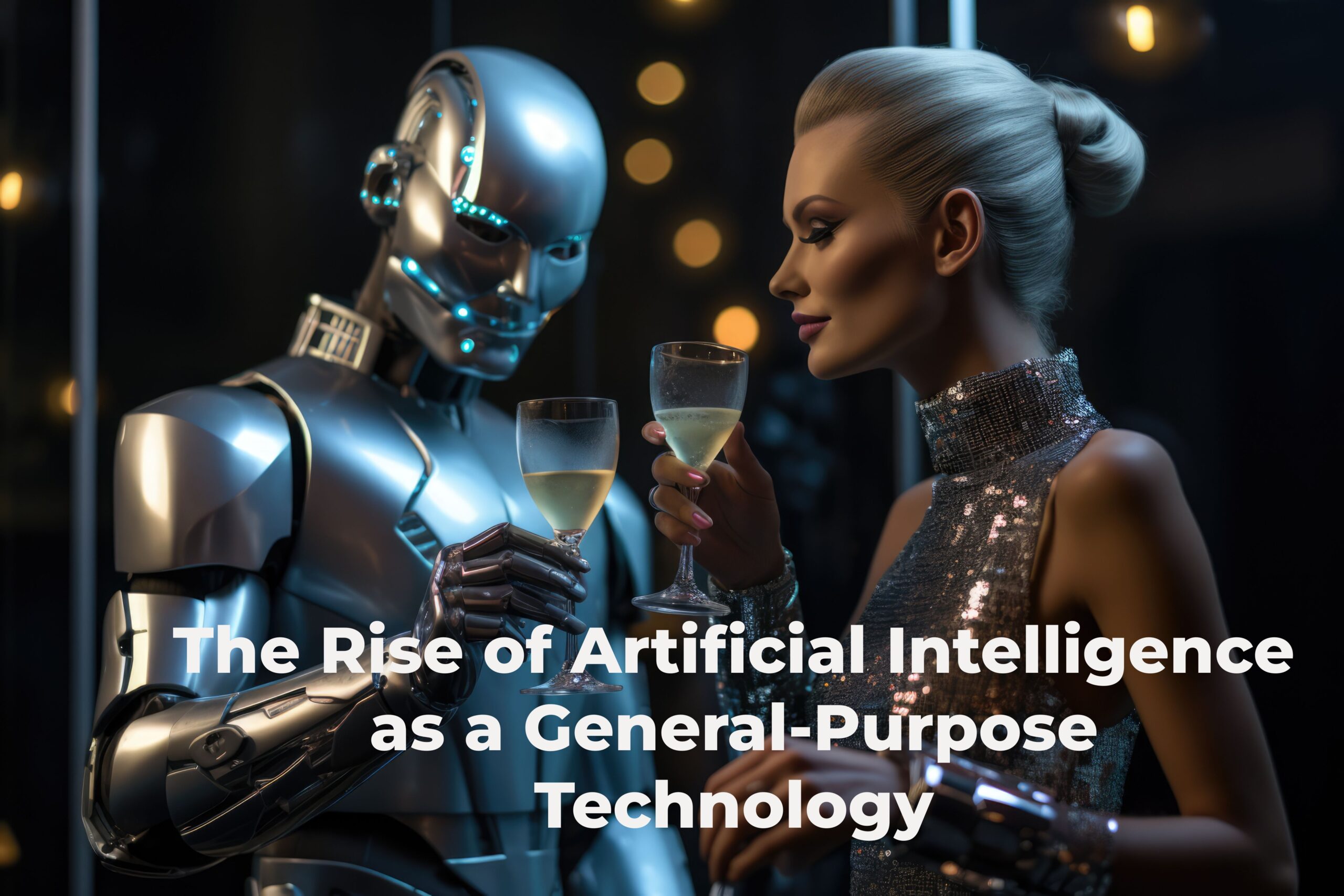Introduction
Artificial intelligence has been going through a shift from a niche domain into one of the radical general-purpose technologies that are changing the ways we live and work. This paper discusses the kind of disruption AI is making in different industries, its probable impacts, and what the future beholds for such a disreputable technology.In this article we explore “The Rise of Artificial Intelligence as a General-Purpose Technology”
1. The State of General-Purpose Technologies
Definition of General-Purpose Technologies
General-purpose technologies are innovations with wide applicability’s in that they can greatly cause a sector to change. Unlike some tools or applications like electricity or the internet, which are specific, GPTs bring about fundamental changes in many industries.
1.2 Historical Examples of GPTs
Electricity: Made industries become powered with machines, thereby opening up whole new vistas of applications.
The Internet: It connected the world, bridged the gaps between nations, and through its connectivity, new markets and industries were created.
Artificial Intelligence: The New General-Purpose Technology
Categorization of Why AI Is Called a GPT
This makes AI a general-purpose technology because of its versatility and learning capabilities, through which it can be potentially used in any industry from health to finance, creating innovation and efficiency.
Key Components of AI
Machine Learning: Algorithms that learn from data and learn over time
Natural Language Processing: enhances interaction between people and machines; it helps machines to understand and generate human language
Robotics: is the combination of AI and physical machines, which enables independent activities to be completed
AI Across Industries Influence
Healthcare
Diagnostic and Nee Treatments
This thus helps in the diagnosis of diseases more quickly and with accuracy. Machine learning models could interpret medical images, predict the outcome of the patient, and personalise treatment plans.
Drug Discovery
AI accelerates drug discovery by predicting how various compounds would act on biological systems, hence saving much time and cost in the development of new medicines.
Finance
Fraud Detection
AI systems can analyze vast financial data in real time and recognize patterns that are out of the norm to help prevent fraudulent transactions.
Algorithmic Trading
AI algorithms analyze market trends and execute trades at optimum times, enhancing trading strategies and thereby increasing profits potentially.
Manufacturing
Automation
AI-driven robots and systems automate repetitive tasks, improving efficiency and reducing human error on production lines.
Predictive Maintenance
AI-based predictive analytics can predict equipment failures before they happen, resulting in reduced downtime and maintenance costs through the analysis of sensor data and operational conditions.
Transportation
Autonomous Vehicles
In a go, the cars should auto-drive, avoid obstacles, and make smart decisions all by themselves to ensure safer and better transportation.
Traffic Management
Optimization in traffic flow is possible by the AI, which helps analyze data from various sources and hence reduce congestion, ensuring better urban mobility.
Ethical and Societal Implications
Job Displacement
One of the concerns that comes with the automation capabilities of AI is related to job displacement. Undoubtedly, some role would become redundant, but on the other side, new opportunities and industries would birth.
Privacy Concerns
The fact that artificial intelligence can analyze large data sets increases privacy concerns. Data protection and ethical use of AI are important for public trust.
Bias and Fairness
This means that AI systems can, without knowing, exacerbate such biases by picking them from biased training data. It is absolutely essential to identify and lessen such biases so that the outcomes are neutral and relevant.
The Future of AI as a General-Purpose Technology
New Trends
Advanced Collaboration between Humans and AI
There is the possibility that future research would be on how best to handle collaboration between humans and AI so that it is ever concurrent for the best mix and mutual benefits.
AI in Everyday Life
AI will become inbuilt into day-to-day life, ranging from smart home devices to personalized digital assistants to enhance ease and functionality.
Policy and Regulation
It will thus be quite necessary to have strong and effective policy and regulation in order to guide AI development and applications toward prudent and responsible use.
Long-Term Impact
In fact, AI as a GPT is likely to have massive long-run impacts on the industrial structure, economies, and ways of living. The realization of its full promise will be characterized by learning and adaptation that never stop.
Readmore: https://mariblogtech.com/telecommunications-jobs-exploring-opportunities-in-a-growing-industry/
Conclusion
The Rise of Artificial Intelligence as a General-Purpose Technology reshaping industries and fueling innovation in most sectors. Its ability to learn, adapt, and be automated has placed it as the backbone of future developments. Any further progress regarding this matter would rely on proportional attitudes meant to ensure that it resonates with good in society.
A general-purpose technology is, therefore, an innovation that has broad applications with the ability to remarkably affect a number of industries. Electricity and the internet are examples.
FAQ
How does AI qualify as a general purpose technology?
AI is GPT because it is versatile and has the power to enhance or transform multiple industries, including healthcare and finance.
Key AI applications in healthcare
It is applied in diagnostic imaging, developing personalized treatment plans, and really quickening drug discovery in health care.
What are some of the main ethical concerns related to AI?
The major ethical concerns are work displacement, privacy concerns, and bias in AI outputs.
How is AI going to impact the future job market?
AI can displace people from some of the sectors; at the very same time, it would create new roles and industries, making adaptation and reskilling of workforce necessary.
